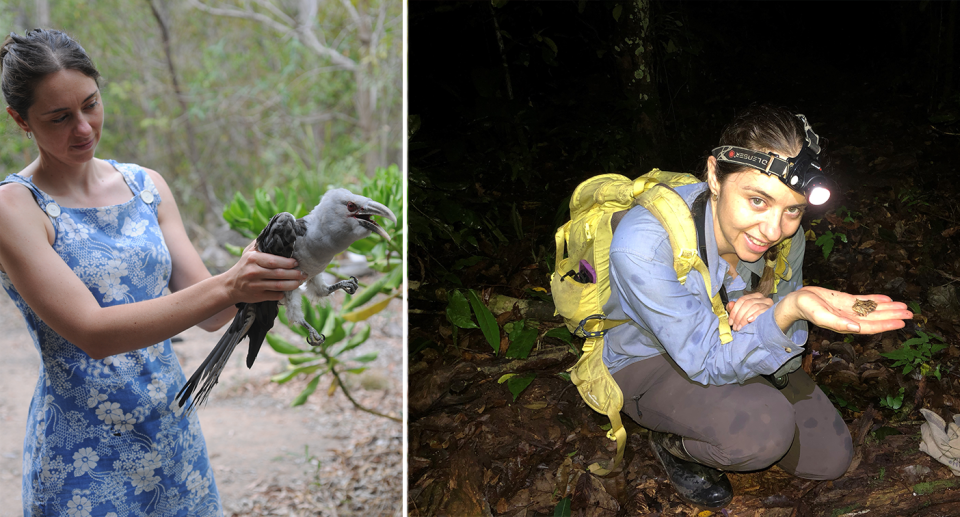The iconic animals set to vanish from Australia in 'extinction crisis'
An Australian scientist who has joined the fight to halt the “extinction crisis” says that it is her way to make sure future generations get to see our “crazy animals” for ourselves.
University of Queensland scientist Dr April Reside told Yahoo News Australia that it makes her feel “really sad” that iconic Australian animals may disappear.
“I think about animals that have gone extinct before my lifetime,” she said.
“Like the Tasmanian tiger, what an incredible creature that would have been.
“It looked like a dog and had stripes like a tiger, but it was a marsupial - it was more closely related to a koala than a dog.
“What a crazy animal, what an amazing thing it would have been to see that animal alive and I will never get to see it because it went extinct in the 1930s.”

Extinction of Tasmanian tiger questioned after eight ‘sightings’
Distraught carer's fears for rescued wombats after being released
Environment minister reveals priorities to stop Australian animals becoming extinct
Dr Reside is one of 240 scientists who have put their name to an open letter, calling out failures in federal laws designed to conserve the homes of endangered species.
The 37-year-old is currently studying the endangered black-throated finch, a bird she says has lost over 80 per cent of its original habitat.
Roughly half of that loss has happened since the Environment Protection and Biodiversity Conservation Act (EPBC) was enacted, with even more proposals on the cards to clear more land.

In putting her name to the letter, Dr Reside hopes generations of Australians who are yet to be born will get the chance to see other “crazy animals” like the tree kangaroo.
“Kangaroos living in trees, it’s so exciting to see these animals,” she said.
“The rainforest fragments that they persist in are often really tiny.
“And there are so many species in that situation, it’s not just one or two.”
Fears endangered species protections could be weakened
In Australia, 1800 animals are on the endangered list and conservative estimates suggest 17 face extinction in the next 20 years.
The Environment Minister Sussan Ley’s office has confirmed with Yahoo News Australia that a review of the EPBC Act will be announced this week.
Many of scientists who had added their name to the open letter hold fears the federal government is planning to weaken these habitat protection laws.
The letter marks a public resurgence of the Places You Love alliance between 57 environmental groups including Humane Society International, WWF-Australia, BirdLife Australia, Wilderness Society and Australian Conservation Foundation.
In a statement, Environment Minister Sussan Ley stressed that the EPBC is an independent process and that scientists will have the opportunity to make submissions.
“The government is investing significantly in environmental restoration and land care programs to promote biodiversity and safe havens for our native species,” Ms Ley said in a statement.
“We are already announcing a further expansion plans for indigenous protected areas which play a key role in maintaining biodiversity.
“As well as the EPBC review, a separate senate inquiry is examining ways to support and improve biodiversity among native species.
“These findings will be open to consideration by the EPBC review panel.
“The review of the EPBC Act will be structured to encourage submissions such as this and a wide variety of public, scientific, agriculture and industry perspectives.”
Do you have a story tip? Email: newsroomau@yahoonews.com.
You can also follow us on Facebook and Twitter, download the Yahoo News app from the App Store or Google Play and stay up to date with the latest news with Yahoo’s daily newsletter. Sign up here.



